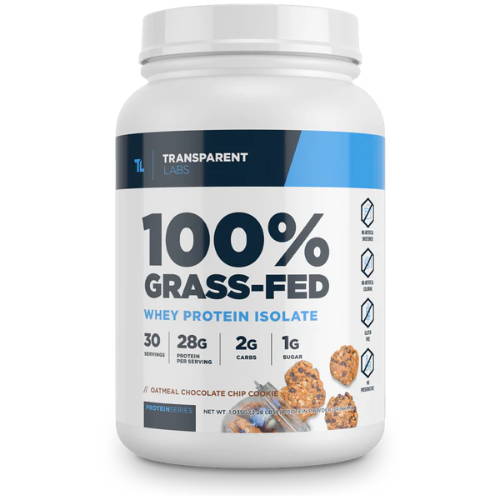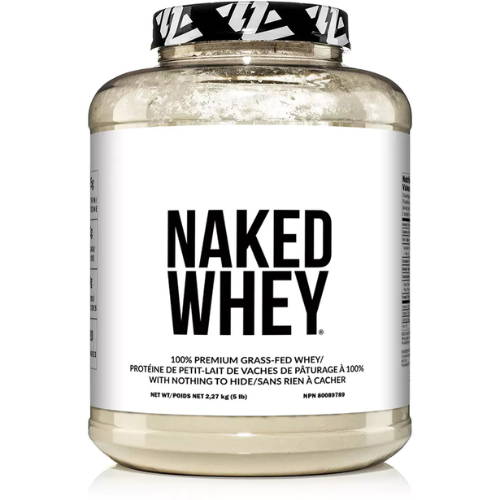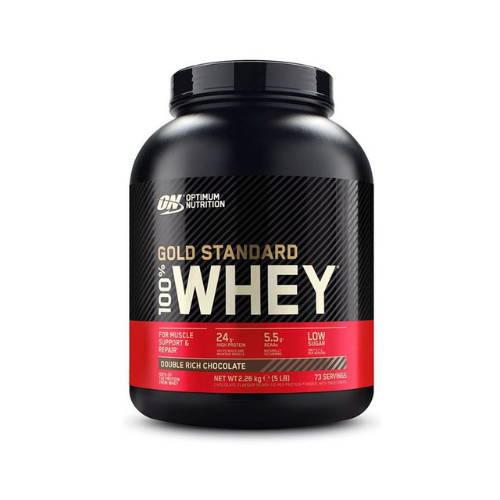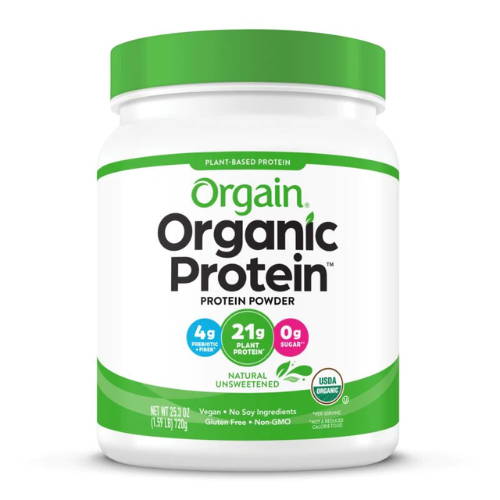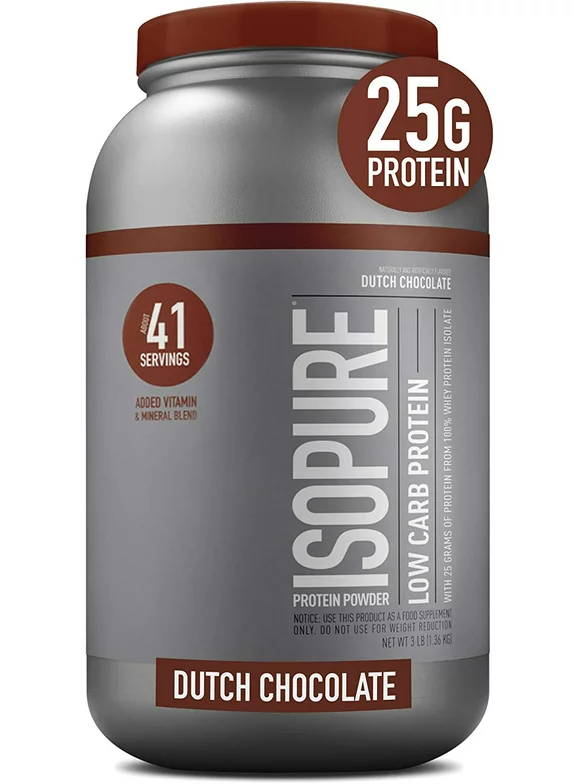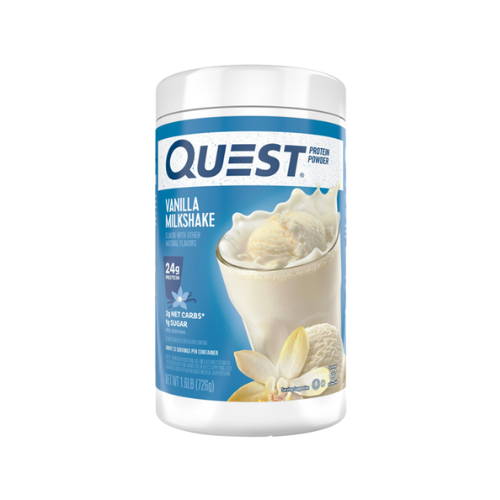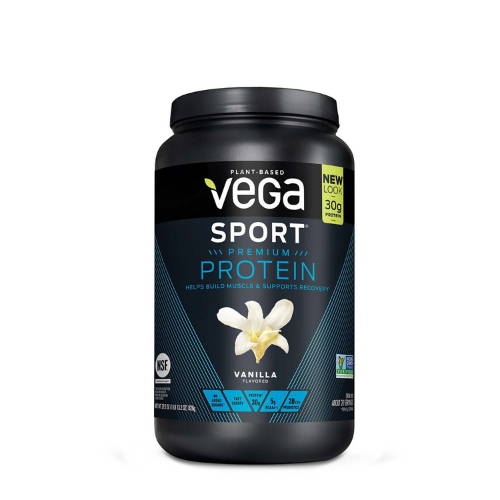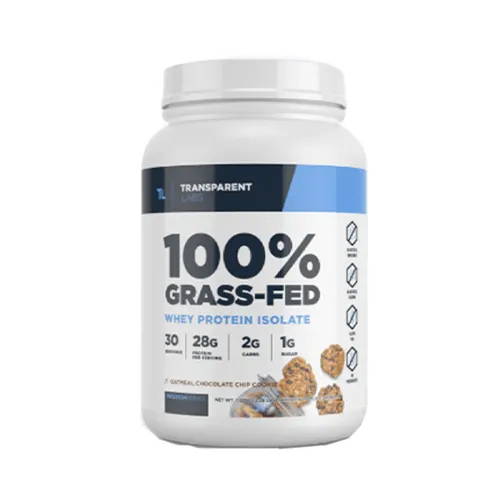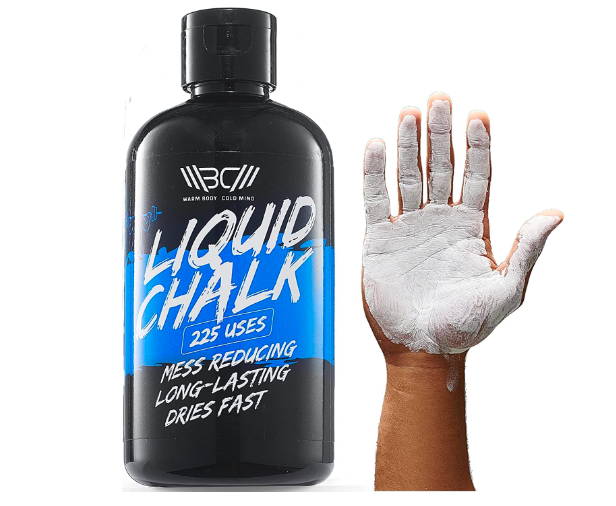The best protein powder for teens has a healthy balance between protein, carbs, and fat where the carbs and fat portion is kept low.
Additionally, a protein shake for teens should have enough amino acids and essential micronutrients to boost recovery.
While a protein powder for teenage athletes can be made of either whey, casein, or plant-based blends, as long as the protein quantity is high. Lastly, protein shakes for teenagers should be balanced with a healthy diet that fills in any lacking nutrients or dietary needs.
Our team of experts, consisting of professional athletes, certified nutritionists, and PhDs in Sports Science, has taken 16 different protein powders for teens and tested each product rigorously.
After over 200 hours invested, each of the protein powders was rated based on macronutrients, taste/flavor, mixability, micronutrients, and features.
What was left after the results is the list (below) of the 7 best protein powders for teens that money can currently buy. As new challengers pop up on the market, the list will be updated accordingly.
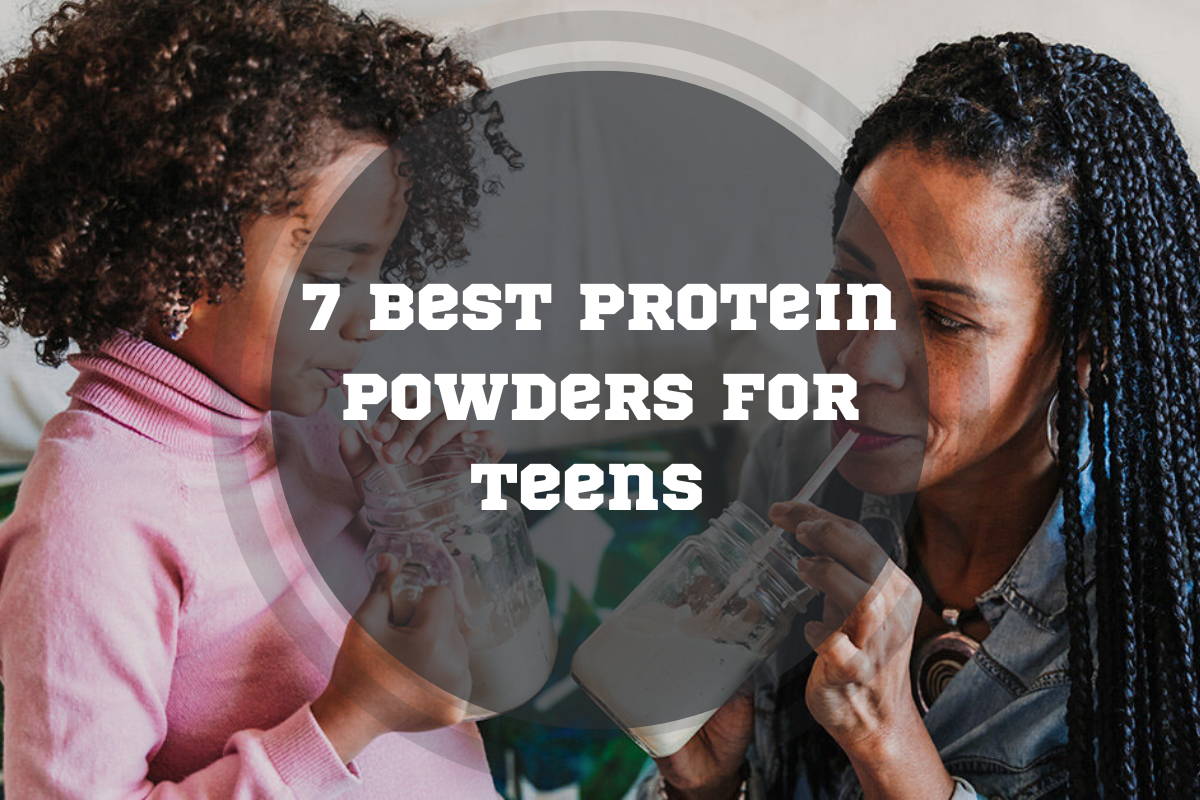
Top 7 Best Protein Powder for Teens Reviewed
In this article, I will show you some popular plain protein powder on the market. I have compared all options by the most important characteristics: package, taste, ingredients, blending, and price-quality ratio.
Find a brief summary in the table below and scroll down for the most interesting part!
1. Transparent Labs Whey Protein Isolate — Top Pick
- Diet Type (best for): Build Muscle or Lose Weight
- Protein Source: Whey
- Protein Percent of Calories: 81%
- Serving size: 30
- Price per serving: $2
- Protein: 28 grams
- Carbohydrates: 2 grams
- Fat: 0 gram
- Sugar: 1 gram
- Calories per serving size: 120
- Company Founded: 2015
- Recommended by Athletes: Hafþór Júlíus Björnsson, Terron Beckham, Paul Sklar, and Sean Harris
Transparent Labs Whey Protein Isolate is a 100% grass-fed protein source backed by some of the most popular athletes and fitness influencers. A big reason why the product is so popular among high-level athletes is because of the macronutrient breakdown.
Encase you’re unaware, protein, carbs, and fat make up macronutrients. But when it comes to whey concentrate, carbs and fat can be higher compared to whey isolates. It’s in this macronutrient breakdown that the Transparent Labs’ product takes an edge because it only has 2 grams of carbohydrates while having 0 grams of fat.
Also, the grass-fed nature of the protein makes it easier to digest and is an overall more fast-acting source of protein. As for the protein intake, you’ll get 28 grams of it per 32-gram scoop. Each container has 30 servings and the product is priced at $59.99. Which means each serving is about 2 dollars.
In terms of micronutrients, each scoop will provide you with 2% of your daily dose of cholesterol, 12% of sodium, 4% of your dietary fibre, 8% of the calcium you require, 6% of iron, and 4% of potassium. These numbers can vary depending on the flavour you pick, but in general, you’re not getting many vitamins, so you would have to make sure your diet makes up for it.
The product also takes a strong stance against artificial uses. So, there are no artificial sweeteners, colouring, or preservatives. Instead, the protein is sweetened by stevia, which is also why the price of the protein is higher than other protein isolates.
As for flavours, you should be able to find one that you enjoy because you have a lot of options to pick from.
They offer the following: Oatmeal chocolate chip cookie, chocolate peanut butter, milk chocolate, cinnamon french toast, strawberry, mocha, vanilla peanut butter, and french vanilla. Each flavour changes the macro and micronutrient make up slightly, as well. Also, because the product is naturally sweetened, the chocolate flavour ends up being more dark chocolate, which might not be for everyone's taste.
As far as mixability is concerned, all the flavours mix well with water and milk. You should find any clumps of powder at the bottom of your cup, which can be an issue with other protein products. However, the chocolate favours lose some creaminess when blended with milk.
All these positive factors are the reason why this is the best protein powder for teenagers.
Positives:
Low on carbs
100% grass-fed
Numerous flavour options
0 grams of fat
Could be better:
The price per serving is a bit high
The chocolate flavours might not be to everyone's taste
2. Naked Whey Protein Powder — Runner Up
- Diet Type (best for): Muscle Growth and Recovery
- Protein Source: Whey
- Protein Percent of Calories: 83%
- Serving size: 30 grams
- Price per serving: $1.18
- Protein: 25 grams
- Carbohydrates: 3 grams
- Fat: 2 grams
- Sugar: 2 grams
- Calories per serving size: 120
- Company Founded: 2014
- Recommended by Athletes: Kaella Madix and Sunny Lee
The brand name Naked is reflected in the packaging of the Naked Whey Protein Powder. The transparent tub stands out right away from other packaging and in a way, it’s true to their motto “Nutrition With Nothing To Hide”.
It comes with no artificial flavours, sweeteners, or colours, and is also GMO, Soy, and Gluten free. The whey itself is mainly sourced from dairy farms in California and comes from grass-fed cows.
As for the macronutrient breakdown, a single serving contains 25 grams of protein, with just 2 grams of sugar and 3 grams of carbs. In total, the calories of a single serving are 120 and it also contains 5.9 grams of amino acids.
In terms of the micronutrients, you get 17% of your daily cholesterol, 2% of your sodium, 10% of calcium, 1% of iron, 2% of potassium and 0% of your dietary fibre. So, there is some good in there with the amount of calcium you get because whey is derived from milk, but it is lacking in other micronutrients.
However, a unique thing about the Naked Whey product is that it’s cold-processed. This ensures no contamination from synthetic additives, chemical detergents, or heavy metals.
The protein has 4 primary flavours: chocolate, vanilla, strawberry, and unflavoured. But, because there isn’t any soy or sunflower lecithin, this means the powder doesn’t mix as well in water or milk. So, you might find some clumps of protein at the base of your drink.
Positives:
GMO, Soy, and Gluten free
- No artificial flavours, sweeteners, or colours
- 5.9 grams of amino acids per serving
- Cold processed to ensure zero contamination
Could be better:
Might find some protein clumps after mixing
Lacks in micronutrients
- Diet Type (best for): Lean Muscle Mass
- Protein Source: Whey
- Protein Percent of Calories: 48%
- Serving size: 31 grams
- Price per serving: 79 cents per serving
- Protein: 24 grams
- Carbohydrates: 4 grams
- Fat: 1.5 grams
- Sugar: 1 gram
- Calories per serving size: 120
- Company Founded: 1986
- Recommended by Athletes: Taylor Fritz, Justin Jefferson, and Tunde Oyeneyin
Gold Standard has been a long-trusted protein brand. Their serving contains a blend of whey protein isolate, concentrate, and peptides. Each serving comes with 24 grams of protein and 4 grams of carbs, 1.5 grams of fat, and only 1 gram of sugar. These numbers can shift depending on the flavour you pick. But in general, you’re getting a high protein source with low sugar and fat.
As for the micronutrients, you get 18% of your daily cholesterol, 6% of sodium, 10% of calcium and 4% of potassium.
However, each scoop also contains 5 grams of BCAAs, which helps with building lead muscle and also with recovery.
When it comes to flavours, you get a large variety including: Chocolate peanut butter, cookies & cream, extreme milk chocolate, mocha cappuccino, strawberry & creme, and vanilla ice cream. While those who prefer plant-based over whey, Optimum Nutrition does have plant-based creamy vanilla and rich chocolate fudge. Each flavour has lecithin in it, which helps with the mixability of the powder. The powder should dissolve easily and quickly in both milk and water.
Although the protein does have sweeteners, the taste of it isn’t overwhelming. So, if you enjoy having a chocolate shake, you don’t need to worry about an overly sweet drink especially if you pick something like double chocolate or extreme milk chocolate.
Optimum nutrition is also one of the more inexpensive protein powders as their price per serving is only 79 cents. Most other whey-based proteins are double that. Part of the reason why it's budget-friendly is because of their whey blend.
Positives:
Budget-friendly
Has whey protein isolate, concentrate, and peptides
Mixes easily with milk or water
Could be better:
Has artificial sweeteners
Contains soy
- Diet Type (best for): Meal Replacement and Muscle Recovery
- Protein Source: Plant-Based Mix of Pea, Brown Rice, and Chia Seeds
- Protein Percent of Calories: 56%
- Serving size: 46 grams
- Price per serving: $1.30
- Protein: 21 grams
- Carbohydrates: 15 grams
- Fat: 4 grams
- Sugar: 0 grams
- Calories per serving size: 150
- Company Founded: 2009
- Recommended by Athletes: Coco Cuenco Gustafsson and Nicole Winter
Of course, the big selling point of the Orgain Vegan Protein Powder is that everything is organic. The protein is made of a mix of peas, brown rice, and chia seeds. While fibre, rice bran extract, and rosemary extract, along with a few other ingredients makes up the creamer base. Lastly, there is the sweetener.
The product is gluten-free, lactose-free, soy-free, and has no added sugars, but there are sweeteners and thickeners like stevia, guar gum, xanthan gum, and monk fruit extract, just to name a few.
All of this equals to a serving of 21 grams of protein, which is lighter than whey-based protein severing. While having 15 grams of carbs, 3.5 grams of fat, and sugar mainly depends on the flavour. Each serving is also 150 calories, which once again is slightly higher than other protein powders, which is why this makes for a meal replacement if needed.
As for the micronutrients, each serving comes with 4% of your daily calcium, 15% of iron, and 8% of sodium. There are no vitamins listed. As for the sodium, it’s a little high, but you do get plenty of iron.
The Orgain protein powder comes in a few different flavour options. These include: Vanilla, iced coffee, natural unsweetened, pumpkin spice, and strawberry & cream. Apart from the unsweetened option, the rest have sweeteners like monk fruit, stevia, and erythritol, which makes them really tasty.
As for the mixability of the powder, it’s not as smooth as other drinks because it’s lacking lecithin. Yet, it mixes well enough that it isn’t a big deal. You can use just water if you want to keep your calories lower and even with water, you’ll get a creamy taste.
Positives:
Completely organic
Unique flavour options
Gluten-free, lactose-free, and soy-free
Could be better:
Higher carb total per severing compared to other protein powders
Lower protein amount per serving
- Diet Type (best for): Muscle Building and Recovery
- Protein Source: Whey
- Protein Percent of Calories: 91%
- Serving size: 33 grams
- Price per serving: $1
- Protein: 25 grams
- Carbohydrates: 1 gram
- Fat: 0.5 gram
- Sugar: 0 gram
- Calories per serving size: 110
- Company Founded: 1984
- Recommended by Athletes: Julana and Betina Gozo Shimonek
The Isopure Whey Isolate Protein Powder sets itself apart from other protein powders through their incredibly low carbs make up. The almost zero carbs per serving make them especially ideal for those following a ketogenic diet.
Also, because the carb quantity is so slow, each serving only has 110 calories, while providing you with 25 grams of protein and half a gram of sugar.
This combination is also unique as you rarely see that amount of protein with a low-carb powder.
Another thing that is unique about this protein powder is the number of vitamins you can get. Micronutrients are often lacking in protein shakes. However, Isopure does its best to address this issue by providing you with 25 micronutrients with each scoop. This includes 30% of your daily vitamin recommendation.
Along with this, you’re also getting 25% of your daily calcium recommendation. This is also much more than other whey-based protein powders.
The main way they can have this kind of carb-to-protein ratio is because the powder is a whey isolate. However, it does contain soy lecithin, sucralose, and some artificial flavouring.
In terms of the flavours, you have an option of your typical shakes like cookies & cream, creamy vanilla, dutch chocolate, and strawberry & cream. Each of the flavours mixes pretty well with water and milk because of the lecithin. So, there shouldn’t be any protein clumping in your drink.
However, because of the sucralose and artificial flavouring, the chocolate flavours can be a bit too sweet when mixed with milk.
Positives:
Low carbs and fat quantity
High in vitamins
Can get up to 25% of your daily calcium
Could be better:
Contains artificial flavouring, along with soy
Certain flavours can be too sweet when mixed with milk
- Diet Type (best for): Muscle Building, and Weight Loss
- Protein Source: Whey Isolate and Casein
- Protein Percent of Calories: 48%
- Serving size: 31 grams
- Price per serving: $1.38
- Protein: 24 grams
- Carbohydrates: 2 grams
- Fat: 0.5 grams
- Sugar: 1 gram
- Calories per serving size: 110
- Company Founded: 2010
- Recommended by Athletes: Ashly and Kyla Kinna
The Quest Nutrition Protein Powder is made of whey isolate and casein protein. Casein protein has a lot of benefits including its slow-dissolving nature, which means you’ll feel less hungry for a longer period of time. That’s why Quest protein can be an excellent meal replacement or a shake to help you lose weight as well.
Each serving contains only 110 calories, which is great if your goal is to lose some weight. You’re also getting 23 grams of protein, 1 gram of fat, 4 grams of carbs, and virtually zero fat.
While in the micronutrients department, you get 8% of your daily sodium intake, which can be considered slightly high. You also get 6% of your daily cholesterol, which is on the low side. But where the protein excels is in providing you with 35% of your daily calcium intake, 4% of iron, and even has 6% of magnesium, which is hard to find in protein shakes.
The Quest product does have an artificial sweeter in form of Splenda, however, there is no artificial flavouring. It is also soy and gluten-free. But it does include lactose and is missing digestive enzymes that might help with sensitive stomachs.
As far as flavours are concerned, Quest provides you with plenty of options including: Chocolate milkshake, cinnamon crunch, coconut oil, cookies and cream, peanut butter, and salted caramel.
However, the coca flavouring in the shakes can be pretty strong, so the shakes taste better with milk than water. Plus, there are some mixability concerns as you can find sizeable chunks of protein even after thoroughly shaking the bottle.
Positives:
Casein protein can help with weight loss
Up to 35% of your daily calcium intake
Virtually no fat
Could be better:
Doesn’t mix as well
No digestive enzymes for people with sensitive stomachs
- Diet Type (best for): Muscle Building and Recovery
- Protein Source: Plant-based Pea Protein
- Protein Percent of Calories: 75%
- Serving size: 44 grams
- Price per serving: $1.47
- Protein: 30 grams
- Carbohydrates: 6 grams
- Fat: 3 grams
- Sugar: 2 grams
- Calories per serving size: 160
- Company Founded: 2001
- Recommended by Athletes: Waikei Tong and Rach McBride
The Vega Sport Premium Protein Powder is a vegan-friendly protein, which is 100% plant-based. The main source of protein is peas which gives you as much as 30 grams of protein with each serving. Along with this, you’ll get 6 grams of carbs, 3 grams of fat, and 2 grams of sugar.
Although the carbs and the overall calorie count are higher than other proteins, you will also get 5 grams of BCAA amino acids and an additional 5 grams of Glutamic Acid. All in all, you’ll receive 9 essential amino acids with each serving.
While for the micronutrient portion, Vega protein has 0% cholesterol and provides you with 7% of your dietary fibre for the day.
Another positive is that this protein is rich in iron as you can have upward of 40% of your daily requirement of iron and 15% of calcium. However, the sodium intake is on the higher side as you’ll receive 17% of your daily requirement.
Vega Sport protein also focuses heavily on recovery. To make sure you recover properly, it has turmeric extract, tart cherry, and 2 billion CFU probiotics, all of which aid muscle building and help with recovery.
The protein is also keto friendly as it only has 3-gram net carbs, and comes with no artificial sweeteners, colours, or flavours. Plus it's lactose and dairy-free and soy free.
As for the flavours, they are your typical berry, chocolate, mocha, peanut butter, and vanilla choices. But as far as taste is concerned, you get a natural, earthy taste because of the ingredients. Stevia can help mask it a little.
But the powder does mix well with water and milk. Also, the taste can improve if you add the protein to a smoothie.
Positives:
NSF certified for sport
Rich in iron
Special attention is paid to post-workout recovery
Could be better:
The taste might take time to get used to
High in sodium
Subscribe!
The latest reviews of must-have home gym training equipment, apparel, and supplements that will enhance your performance and bring you new results.
Do You Need to Take Protein As a Teen?
1. Helps Build Muscle
How much protein you intake plays a big factor in your energy, muscular growth, and tissue repair. As a teenager, your body is constantly growing and changing and even the slightest amount of resistance training will lead to the development of muscle.
But to maximize muscular development, you need to make sure you’re having enough protein. Now, you can get protein from several different sources, a protein shake being just one option.
However, many find it easier to meet their protein intake requirements through a shake because otherwise, you would have to eat 3 to 5 meals a day, which, a busy teenager, might not have the time to do.

2. Essential for Vegetarian and Vegan Teenagers
Vegetarian and vegan diets have plenty of health benefits. One area they do lack is protein intake. Even the most protein-dense vegetarian foods aren’t really comparable to meat products.
That’s why a vegetarian or vegan teen needs to have extra protein through shakes. This isn’t just for a teen whose attempting to build muscle. For your general health, you need to have enough protein so that you have a healthy balance between your carbs, fats, and protein.
And, of course, if you’re attempting to build muscle and strength as a vegetarian, then it’s even more important to nail your protein intake.
3. Curbs Hunger
Teenagers have long school days where they eat their breakfast early in the morning and won’t have anything until their lunch break. For some, this is a long time to go before another meal and can cause them to feel very hungry.
One way to avoid hunger pangs is to have protein before leaving for your school. Protein takes longer to digest compared to carbs, which is how it can come to suppress your appetite.
In the same way, protein can be excellent if you’re planning on losing weight. Often, it’s our sugar, fat, and carb intake that makes us gain a lot of weight. But by cutting back on sugar, carb, and fat calories and increasing our protein intake, can make it easier to lose weight.

How to Find the Best Protein Powder for Teens?
1. Amino Acids
2. Whey vs Casein Protein
3. Plant-Based Protein
4. Nutrition
Nutrition is one area where a protein powder isn’t the best option. Generally, a protein powder isn’t very nutrition-rich, so if you’re lacking in vitamins and fibres, having a high protein powder intake can get in the way even more because you could end up skipping meals or snacks that would be rich in nutrition.
So, if you’re gonna supplement protein powder, make sure you’re getting enough nutrients from your diet.
3 Protein Consumption Tips for Teens
1. Daily Intake
When it comes to protein consumption for teens, your daily intake should be anywhere between 34 to 52 grams. You could have more than this, but the 34 to 52 range is more of a bare minimum.
And you would want this protein to come from different sources throughout the day rather than just one big meal.
But if you aim to grow muscles as a teen then your protein consumption should be between 0.7 to 0.9 grams of protein per body weight.
2. Protein Timing
There are many schools of thought that have good arguments about when to take your protein shake. You could take it before your workout, so the amino acids can help reduce muscle damage.
Or you could take it after your workout to help rebuild the muscle you’ve just worked. Some data says you can have it hours later and the effect is largely similar to having protein right after your session. This is great because it can make your protein intake more flexible.
You could then experiment and find the right balance for you because some people feel too bloated with protein to work out after taking it or you might want more carbs after a workout.
3. Protein Mix
As mentioned before, a protein shake doesn’t contain many essential nutrients. One way to fix this is by adding a scoop of protein to a smoothie. So, you could make a smoothie of various fruits and veggies and even ice cream to help the taste and blend a scoop of protein in there to get more calories, proteins, nutrients, and healthy carbs.

FAQ
Is it OK for a Teenager to Drink Protein Shakes?
Teenagers can have protein shakes without worrying about any side effects. The main thing to consider is which protein shake they are intaking and how much. Of course, if they are taking much more than they need then the shake could cause some issues as it will be tough for them to digest all of it. While for the brands, you want to pick a safe brand that doesn’t have too many artificial ingredients or chemicals. Of course, if the teen has any allegories, that should be taken into consideration as well.
Can a 14-year-old Drink Protein Shakes Every Day?
It mainly depends on that 14-year-olds diet. A protein shake is a supplement, so its purpose is to supplement your current diet. If the protein shake is being used as a full meal, then there could be some issues because a growing body needs proper macro and micronutrients, which mainly come from a full, balanced diet. But if the shake is in addition to a balanced diet, then there shouldn’t be an issue.
Is Whey Protein Ok for a 15-year-old?
Whey is perfectly fine for a 15-year-old to take. But one thing to consider is that whey is derived from milk, so if the teenager is lactose intolerant, whey protein might not sit well with them. However, if there are no dietary restrictions, then whey is a great protein source.
Conclusion
Protein for teens can have a multitude of benefits including muscle and strength gain, recovery, weight loss, and hunger control. However, it’s best to use protein as a supplement, which means your diet should be prioritized. But a protein shakes for teenage athletes can provide you with macro and micronutrients.
The best whey protein powder for teenagers is Transparent Labs Whey Protein Isolate.
When do you prefer to take protein? Before or after your workout? What’s your favourite and least favourite protein flavour? How important are the recovery benefits of a protein shake to you? What’s the best way to take protein without interrupting your meals?
Let’s discuss all of this and any other questions you might have in the comment section below!
Also Read:
- Best Grass Fed Whey Protein
- Ensure vs Premier Protein
- Collagen Protein vs Whey Protein
- Whey Protein Isolate vs Concentrate
- Mass Gainer vs Whey Protein
- Best Protein Powders Without Artificial Sweeteners
- Best Tasting Protein Powder With Water
- Best Protein Powder for Senior
- Best Whey Isolate Protein Powder
- Is Casein Better Than Whey
References:
- Is It Safe for a 14-Year-Old to Drink Protein Shakes? // Sfgate: https://healthyeating.sfgate.com/safe-14yearold-drink-protein-shakes-12336.html
- How Teen Athletes Can Build Muscles with Protein // Eatright: https://cutt.ly/Q1Xq29k
- All Photos Made by Torokhtiy Media Team.
Oleksandr is a professional fitness nutritionist, certified by FPA (Fitness Professional Association). Oleksandr adheres to the principles of evidence-based dietetics and instills in his clients a healthy relationship with food - without strict prohibitions on favorite foods and regular disruptions. His main task – not only get a result for you, but also maintain it for many years, enjoying tasty and delicious food.

